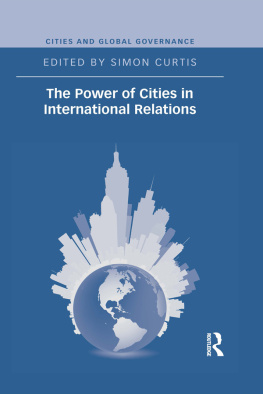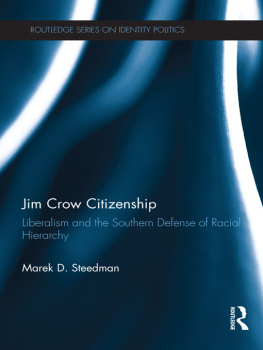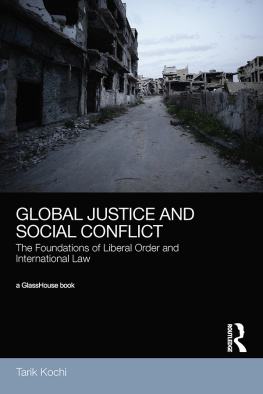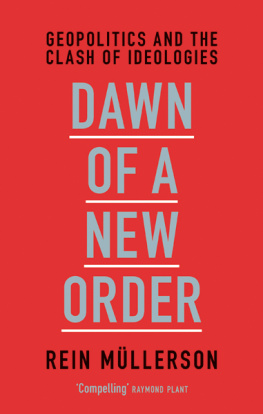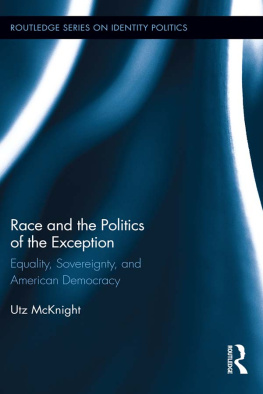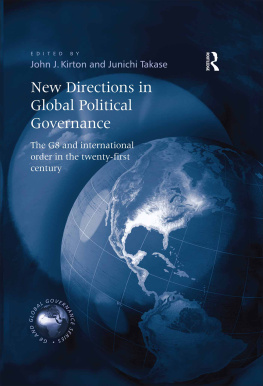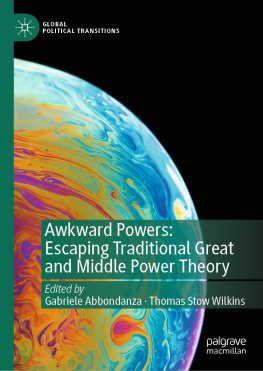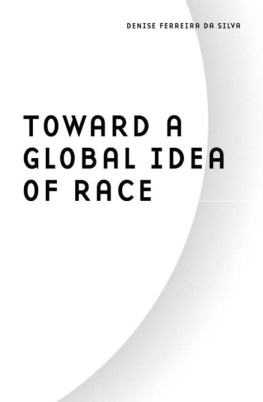Global Race War

Oxford University Press is a department of the University of Oxford. It furthers the Universitys objective of excellence in research, scholarship, and education by publishing worldwide. Oxford is a registered trade mark of Oxford University Press in the UK and certain other countries.
Published in the United States of America by Oxford University Press
198 Madison Avenue, New York, NY 10016, United States of America.
Oxford University Press 2021
All rights reserved. No part of this publication may be reproduced, stored in a retrieval system, or transmitted, in any form or by any means, without the prior permission in writing of Oxford University Press, or as expressly permitted by law, by license, or under terms agreed with the appropriate reproduction rights organization. Inquiries concerning reproduction outside the scope of the above should be sent to the Rights Department, Oxford University Press, at the address above.
You must not circulate this work in any other form and you must impose this same condition on any acquirer.
Library of Congress Cataloging-in-Publication Data
Names: Barder, Alexander D. author.
Title: Global race war : international politics and racial hierarchy / Alexander D. Barder.
Other titles: International politics and racial hierarchy
Description: New York, NY : Oxford University Press, [2021] |
Includes bibliographical references and index.
Identifiers: LCCN 2021006110 (print) | LCCN 2021006111 (ebook) |
ISBN 9780197535622 (hardback) | ISBN 9780197535646 (epub)
Subjects: LCSH: RaceHistory. | Political violenceHistory. |
GenocideHistory. | ImperialismHistory. | RacismHistory.
Classification: LCC HT1507 .B368 2021 (print) | LCC HT1507 (ebook) |
DDC 305.8009dc23
LC record available at https://lccn.loc.gov/2021006110
LC ebook record available at https://lccn.loc.gov/2021006111
DOI: 10.1093/oso/9780197535622.001.0001
To my wife Alla and my children Robert and Anas
Contents
It took me time to understand what I wanted to write about for my third book. However, the election of Donald J. Trump to the American presidency in 2016 on an overt platform of racial fear and resentment was a profound shock. The daily violence perpetuated against persons of color in the United States and throughout the West and the legitimation of transnational fascistic desires to preserve the semblance of White supremacy was deeply disconcerting. In this sense, this book comes out of a particularly historical political moment of racial resentment and retrenchment that calls into question narratives of historical finitude born out of the 1990s. As international relations scholars, we need to better understand the connections and convergences of race, empire, hierarchy, and violence to structure an imaginary that excluded the vast majority of people on the planet. As Jean-Paul Sartre famously wrote in the preface to , Not so long ago, the Earth numbered 2 billion inhabitants, i.e., 500 million men and 1.5 billion natives. This way of imagining the world continues to haunt our politics of the present.
I am grateful to all my colleagues in the Department of Politics and International Relations at Florida International University for creating an incredibly collegial and stimulating environment. In particular, my friendship with Ron Cox, Clem Fatovic, Harry Gould, Eric Lob, Mohiaddin Mesbahi, John Oates, Joaquim Pedroso, Naisy Sarduy, Markus Thiel, Julie Zeng, and Susanne Zwingel. I especially want to thank John F. Clark, who, as department Chair, not only did everything to help me navigate the tenure process but also ensured that I complete this book project in the best of conditions. I also could not have made progress without the help of my teaching assistants over the past few years, Michael Ohene Aboagye, Melisa Balos, Alice DellEra, Leonidas Konstantakos, Yang Gyu Kim, Mazaher Koruzhde, Saeed Mousavi, Imdat Oner, Adam Ratzlaff, and Jermaine Young. Lastly, I would like to thank the Steven J. Green School of International & Public Affairs at FIU for its generous subvention of this books index.
Ive immeasurably benefited from presenting this work at numerous conferences, forums, and discussions with my friends and colleagues over the years, including Daniel Levine, Ulrika Mller, Randolph Persaud, Jelena Subotic, and Ann Towns. My good friend Benjamin Meiches has always asked me questions that took me time to figure out. Im deeply grateful to a tribe of critical political theory and international relations scholars with whom Ive learned so much over the years: Yoni Abramson, Anna Agathangelou, Bentley Allen, Jack Amoureuax, Shannon Bricant, Elisabetta Brighi, Asli Falay Calkivik, Mauro Jos Caraccioli, Benjamin de Carvalho, Bill Connolly, Jennifer Culbert, Derek Denman, Cara Daggett, Stefanie Fishel, Julian Go, Daniel Green, Jairus Victor Grove, Nicole Grove, Siba Grovogui, Stefano Guzzini, Inanna Hamati-Ataya, Jarrod Hayes, Waleed Hazbun, Aida Hozic, Naeem Inayatullah, Patrick T. Jackson, Oliver Kessler, Laleh Khalili, Hitomi Koyama, Halvard Leira, Karim Makdisi, David McCourt, Nawal Mustafa, Daniel Bertrand Monk, Dan Nexon, Nicholas Onuf, Nobutaka Otobe, Swati Parashar, Andrew Ross, Claire Sagan, Robbie Shilliam, Chad Shomura, Brent J. Steel, Andrew Szarejko, Tim Vasko, Robert Vitalis, Jason R. Weidner, Lauren Wilcox, and Ayse Zarakol.
In March 2019 I was invited to give the keynote at the ASPECT Conference at Virginia Tech, where I presented a version of . I especially want to thank Franois Debrix for the invitation to spend time with a fabulous group of scholars and graduate students, including Mauro Caraccioli, Linea Cutter, Robert Flahive, Cara Dagget, Bikrum Gil, Tim Luke, Audrey Reeves, and Sara Wenger.
A version of was published in 2017 in a special edition of the Australian Journal of Politics & History as Race War and the Global Imperial Order: The Armenian Genocide of 1915, 63, no. 3.
This book would never have been written without the love and support of my beloved wife Alla, my son Robert, and my daughter Anas.
The discovery of race is the Copernican idea of modern times.
GlobalRace War: International Politics and Racial Hierarchy examines the historical connections between race and violence from the early nineteenth to the early twenty-first centuries. My aim is, first, to show how racial violence and hierarchy were crucial for the development of the very idea of global order. Second, I examine how racial violence proliferated in defense of this global order when its racial hierarchy appeared to be in crisis. Third, this global racial order did not end with the Second World War and with the discrediting of scientific racism, the decolonization of the global South, and the expansion of the state system; rather it continued in different forms as the racialization of cultural or civilizational attributes that then resulted in further racial violence. Finally, examining global politics in terms of race and racial violence reveals a different spatial topology that imbricates the domestic and global in more complicated ways. As a consequence, global histories of racial hierarchy and violence have important implications for understanding the continued salience of race within Western polities. We live in a time when the crisis and waning of a white world order continues to nourish a politics of racial retrenchment and violence at home.



